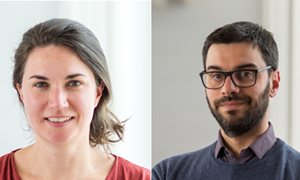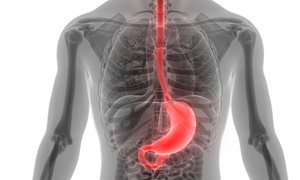19 December 2019
In this article, we explore potential extra interactional work conducted by participants in video-mediated consultations. We focus on the beginning of the consultation. Our data consist of 39 recorded, postoperative, oncological consultations, both face-to-face and through video-mediated communication (VMC), which we analyzed using conversation analysis. Our analysis revealed small but important interactional and relational efforts that physicians employ to enable mediated health care. While in both video and face-to-face settings, the opening was usually followed by an announcement of the pathology report, we identified an alternative pattern of arriving at the reason for the consultation. Physicians may insert the question ‘how are you?’ (HAY?), being both pro-social and eliciting a patient report of the post-surgical state, in openings of medical consultations. The inserted HAY? was much more common in video consultations than in face-to-face consultations, suggesting that the other-attentiveness conveyed with the question was increasingly important in the video-setting. In response to HAY?, patients produced hedged responses, projecting the relevance of an elaboration of their initial answer. However, surgeons unilaterally closed the self-report with optimistic formulations or assessments in order to move on to the pathology results as the first and main reason for the consultation. This was a disaffiliative move, paradoxical to the prior pro-social HAY?. This indicates that inserting a particular move in a video consultation may pose consequences for the organization of rest of the consultation. It also shows that a detailed analysis can reveal aspects of mediated communication that remain under the surface when relying on contrived data (interviews, surveys).
Martijn Stommel is member of theme tumors of the digestive tract.
.aspx?width=4000&height=2250&ext=.jpg&type=BlockColumn1Zoom1)
In this article, we explore potential extra interactional work conducted by participants in video-mediated consultations. We focus on the beginning of the consultation. Our data consist of 39 recorded, postoperative, oncological consultations, both face-to-face and through video-mediated communication (VMC), which we analyzed using conversation analysis. Our analysis revealed small but important interactional and relational efforts that physicians employ to enable mediated health care. While in both video and face-to-face settings, the opening was usually followed by an announcement of the pathology report, we identified an alternative pattern of arriving at the reason for the consultation. Physicians may insert the question ‘how are you?’ (HAY?), being both pro-social and eliciting a patient report of the post-surgical state, in openings of medical consultations. The inserted HAY? was much more common in video consultations than in face-to-face consultations, suggesting that the other-attentiveness conveyed with the question was increasingly important in the video-setting. In response to HAY?, patients produced hedged responses, projecting the relevance of an elaboration of their initial answer. However, surgeons unilaterally closed the self-report with optimistic formulations or assessments in order to move on to the pathology results as the first and main reason for the consultation. This was a disaffiliative move, paradoxical to the prior pro-social HAY?. This indicates that inserting a particular move in a video consultation may pose consequences for the organization of rest of the consultation. It also shows that a detailed analysis can reveal aspects of mediated communication that remain under the surface when relying on contrived data (interviews, surveys).
Martijn Stommel is member of theme tumors of the digestive tract.
Related news items

Chella van der Post and Francesco Ciompi received a grant from Hanarth Foundation
11 November 2021 Unmasking the invisible cancer: digital detection of diffuse-type gastric carcinomas. go to page
Royal decorations for Nicoline Hoogerbrugge, Jolanda de Vries, Koos van der Velden and Jan Buitelaar
28 April 2021 Nicoline Hoogerbrugge, Jolanda de Vries, Koos van der Velden and Jan Buitelaar are appointed by His Majesty as Knight in the Order of the Dutch Lion, a highly prestigious decoration on 26 April 2021. go to page
Increased role of patients after bowel cancer treatment
30 July 2020 Approximately 14,000 patients get colorectal cancer every year. Almost all patients are operated on and monitored afterwards (follow-up). In 2019 Radboudumc started a new approach to follow-up research after the treatment of stage II/III colorectal cancer. go to page
Electronic nose smells precursor of oesophageal cancer
5 March 2020 A portable electronic nose can effectively detect precursors of oesophageal cancer, reported by RIHS researchers Yonne Peters and Peter Siersema in the medical science journal GUT. This was demonstrated in an initial study involving more than four hundred patients. go to page
Laparoscopy reduces the number of adhesions but it is still too high
14 January 2020 Adhesions after abdominal surgery cause too many re-admissions. Although keyhole surgery reduces the number of adhesions and the complications associated with them, the total disease burden remains high, as reported in The Lancet by RIHS researcher Richard ten Broek and colleagues. go to page
